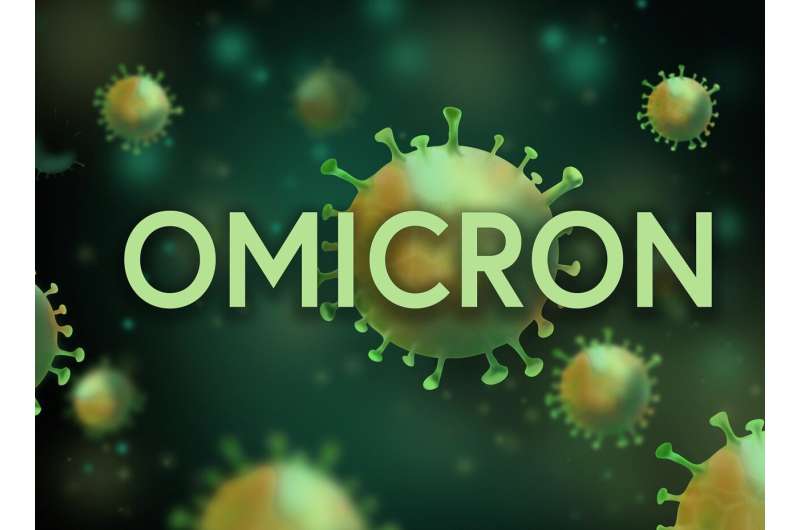Home » Health News »
Moderna has an omicron-specific booster shot. Does it change anything?

Moderna is seeking authorization from the U.S. Food and Drug Administration for a COVID-19 vaccine that adds protection specifically against the omicron variant of the coronavirus.
The company reported recently that the new booster shot, which combines the vaccine for the original strain with omicron-specific protection, offers “superior” immunity against that variant of SARS-CoV-2, the coronavirus that causes COVID-19.
By itself, this new booster shot is probably not going to be a “game-changer,” says Brandon Dionne, associate clinical professor of pharmacy and health systems sciences at Northeastern. But the combined shot offers “proof of concept” for what could be the next chapter of COVID-19 vaccines: shots that generate immunity to multiple strains of the coronavirus simultaneously.
“I wouldn’t be surprised if this replaces the older version of the booster,” Dionne says. “But I don’t think that it’s going to solve everything.”
That’s because this booster was developed for the original version of the omicron variant, but the virus has continued to mutate since then. For example, another version of the omicron variant, BA.2, was responsible for a wave of cases earlier this year, and several more variants have already emerged along that lineage.
“With this continuous mutation, a moving target, it’s going to be very difficult to show that these variant-specific vaccines are going to be effective in terms of future variants,” says Mansoor Amiji, university distinguished professor of pharmaceutical sciences and chemical engineering at Northeastern.
“Today, it’s omicron, BA.1. But what about six months from now?” he says. “Maybe we’ll be talking about BA.8,and this version of the vaccine may not be as effective against that.”
Although there have been more breakthrough infections as the virus has evolved, the original vaccines have held up well in terms of preventing deaths and more severe cases of COVID-19, according to Amiji.
“We are still protected from the older vaccines and the boosters that we have received,” he says. “And so the question really comes down to how much extra protection will this give in terms of preventing disease, severity, and deaths.”
Although Moderna has reported that study participants who received the new combined shot had an elevated antibody response in comparison to those who received their original booster shot, antibody levels aren’t the entire picture of immunity generated by vaccines, Amiji says.
“This data doesn’t say anything about the prevention of infection. It tells you about antibody titers,” he says.
How effective that elevated immune response is at preventing infection and severe cases remains to be seen. Still, there is no risk to getting the combined shot in lieu of an original booster shot, Dionne says.
“If this gets FDA approval and I’m due for a booster, I would probably take this over the current booster, because there’s effectively no additional risks to taking this over the current booster,” he says. “And it might give you a better response to the other omicron variants.”
But there’s no need to rush out and get the new shot or wait for it to be authorized if you are eligible for a booster shot now, Dionne says: “I’d just think of this as replacing your next routine booster whenever that would be.”
The idea of combining vaccines dedicated to generating immunity to multiple strains of a virus is not a new concept. The annual flu shot already includes four: two types of influenza A and two types of influenza B, Dionne says. Combined vaccines are called “multivalent” vaccines. Moderna’s new vaccine is “bivalent,” because it uses just two.
One reason to develop multivalent shots is that scientists have to predict how the virus might have mutated by the time the vaccine has gone through the trial and authorization process, and actually becomes available to patients. Some pharmaceutical companies’ ultimate goal, Dionne says, is to have a combined COVID-19 and flu booster shot to make it easier for people to get immunized.
Although multivalent vaccines are not new, the mRNA technology that both the Moderna and Pfizer-BioNTech COVID-19 vaccines use is new with COVID-19. And because it is a platform technology, Amiji says, scientists don’t have to start from scratch every time there is a new variant that they would like to target with vaccines. But the companies do still need to go through the trial and approval process each time to evaluate safety and efficacy, and that takes time.
Source: Read Full Article



